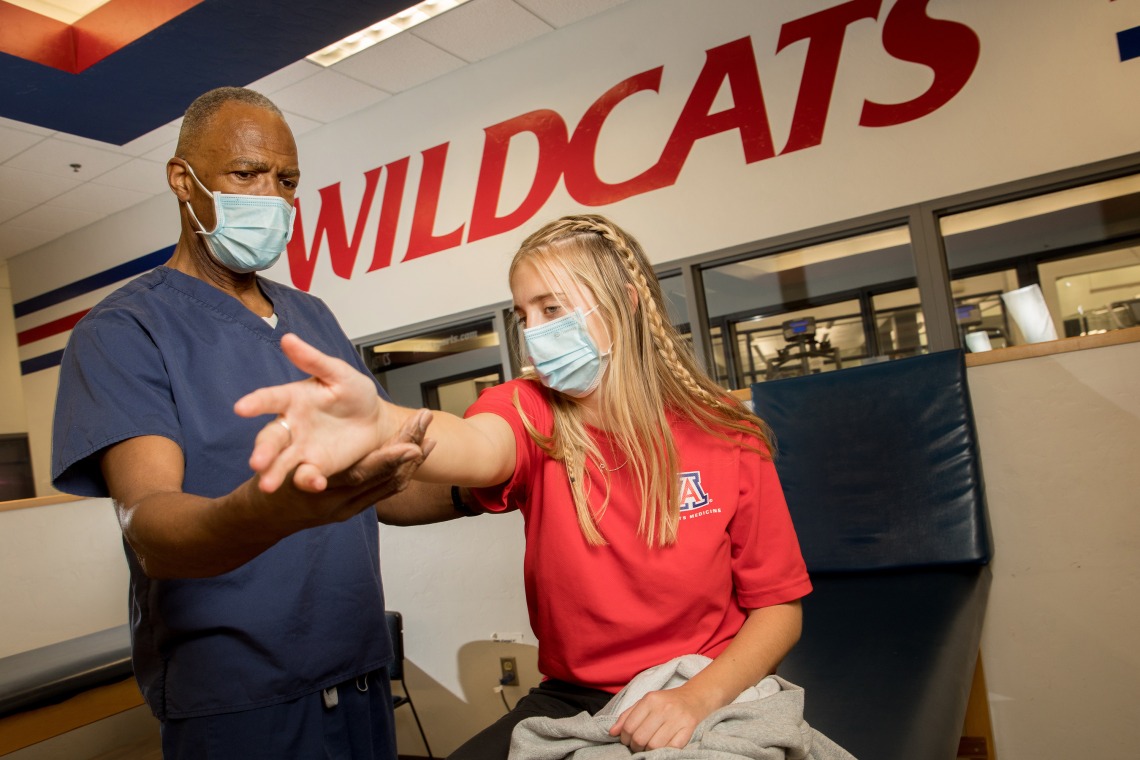Alumnus Donald Porter Shares a Medical Journey Across Five Decades of Service
Arizona Athletics team physician Donald Porter ’75 ’79 has been treating student-athletes for 32 years. He has celebrated championships and helped student-athletes navigate relationships. He’s seen a lot of sweat and treated dislocated joints and even symptoms of leukemia.
“My very first day on the job, I had a kid come in with a sore throat, pain in his armpits and a fever. Also bleeding gums,” he says. “I was concerned about whether he had something like leukemia. Statistically, it was probably more like mono. Well, the kid actually had leukemia. I thought, ‘Holy cow, this is my first day on the job — I’m diagnosing leukemia.’”
Today, that former student-athlete is a football coach.
Porter says things have certainly changed over nearly five decades of work.

“These kids are under such demands, and it manifests in a lot of psychological things. There are more visits for mental health,” Porter says. “On one level, it’s a good thing: Back in the ’80s and ’90s there was a stigma to seeing a mental health professional. People wouldn’t admit to struggling with anxiety or depression. The NCAA has made a lot of progress in helping remove that stigma.”
Now, Porter and the C.A.T.S. medical team have traveled uncharted territory during the coronavirus pandemic.
“With COVID-19, there’s been so much that we don’t know,” Porter says. “We follow CDC guidelines and implement safety protocols. But a lot of things change. Often, we’re telling athletes, coaches, administrators one thing and two or three weeks later, we may be telling them something totally different.”
Long days and little rest have just been part of the job during the pandemic. The medical team’s work has paid off, though. Protocols they implemented have kept student-athletes, coaches and staff safe.
Porter plans to stick around before he heads into retirement. When that day comes, he’ll travel and digitize his eclectic collection of 500 vinyl records. He’ll also continue his life of service.
“When I retire, I’d like to give back. The African American community has been hit hard by COVID-19. There’s a lot of people who are concerned about the vaccine. Many African Americans are skeptical about it, given the Tuskegee experiment and other factors,” he says, referencing the unethical studies from 1932 to 1972 in which Black men were deprived of treatment for syphilis.
He’d also like to be more active in organizations that improve the availability and quality of health care in resource-scarce communities, such as: Doctors Without Borders, Health Volunteers Overseas or The Flying Samaritans.
“I’d like to advocate for people who don’t feel they have the sophistication to deal with the medical system and help narrow that gap to access and impact the medical community’s ability to improve health care delivery.”
